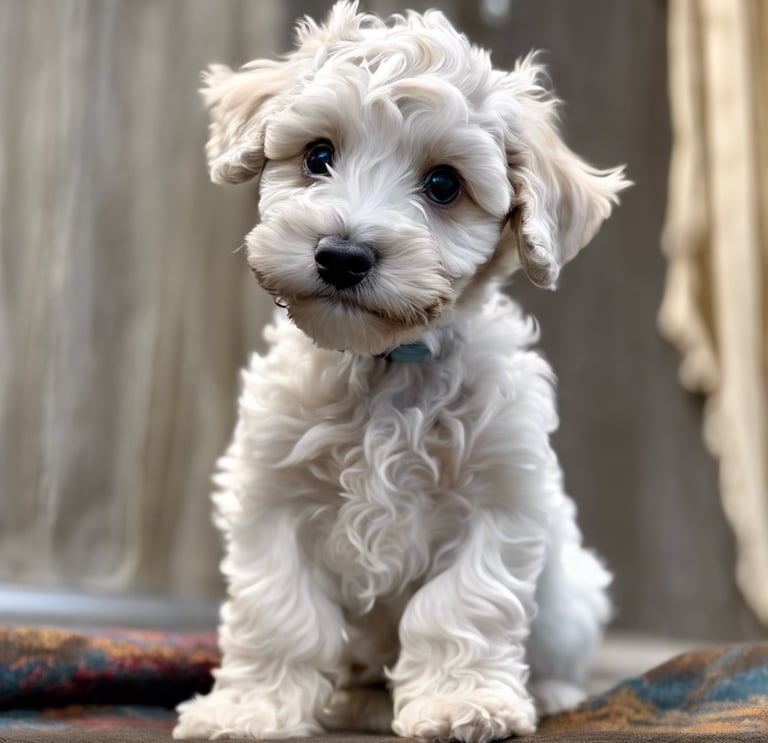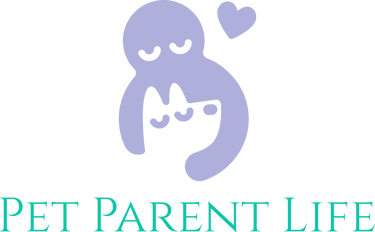As pet parents, it is essential to understand the signs of anxiety in puppies and take proactive steps to prevent it. Anxiety and stress can significantly impact a puppy's overall well-being and quality of life. Let's explore the ten most common signs of anxiety in puppies and navigate the most effective methods of prevention so you and your new puppy can have a life that is safe, calm, joyful, and secure.
1. Excessive Barking or Whining
Puppies experiencing anxiety may exhibit excessive barking or whining. These along with howling, squealing and whimpering are the most common and readily observable signs of stress and anxiety in dogs. They are also par for the course when you have a new puppy or a young dog. They are going to vocalize- its species appropriate behavior- if you don't like barking? Get a goldfish.
It's only when the baring or whining becomes excessive or is combined with one or more other symptoms on this list. This behavior is often a cry for attention or a response to feeling overwhelmed. To prevent anxiety-related barking, provide your puppy with plenty of mental and physical stimulation, establish a routine, and create a calm environment.
2. Pacing or Restlessness
If your puppy is constantly pacing or unable to settle, it may be a sign of anxiety. You may even notice damp footprints all over your shiny floors or slightly wet paws from stress related sweating. To prevent restlessness, ensure your puppy gets regular exercise, provide mental stimulation through interactive toys, and establish a comfortable and secure sleeping area.
3. Chewing or Destructive Behavior
Anxiety can manifest in puppies through destructive behavior such as chewing furniture, shoes, or household items. This is one of the hallmarks of severe clinical separation anxiety. Unfortunately, it's also just normal puppy curiosity and explorative behavior.
To prevent this, provide appropriate chew toys, puppy-proof your home, and use positive reinforcement training techniques to redirect their behavior. If you suspect separation anxiety, consider leaving a camera behind when you leave for a short period and see how they do. Separation anxiety in puppies is preventable and manageable if caught early enough but its also important to pat attention to frequency, context and whether or not its affecting quality of life (yours or theirs)
4. Excessive Panting or Drooling
Puppies experiencing anxiety may exhibit excessive panting or drooling, even when the temperature is normal. You may find they seem more slobbery than usual or notice puddles or damp spots near where they've been sleeping or laying, To prevent this, ensure your puppy has access to fresh water, provide a cool and comfortable environment, and avoid exposing them to stressful situations.
5. Avoidance or Hiding
Puppies with anxiety may try to avoid or hide from certain situations or people. To prevent this, gradually expose your puppy to new experiences, people, and environments, using positive reinforcement and rewards to build their confidence. Try to give the puppy a secondary option to engage with the activity or person this will also build resilience and reinforce their autonomy while building their confidence to regulate their own emotional responses.
6. Excessive Licking or Gnawing
Some puppies may resort to excessive licking or gnawing as a coping mechanism for anxiety. This could be toys, walls, carpets, floors, themselves, even you!!! To prevent this behavior, ensure your puppy has a balanced diet, provide appropriate chew toys, and engage in regular grooming and exposure to gentle touch with consent to maintain their physical and mental well-being.
7. Aggression or Fearful Behavior
Anxiety in puppies can manifest as aggression or fearful behavior towards people or other animals. They often feel that the only way they can communicate that they feel frightened or unsafe is by biting or snapping to create distance between themselves and the scary thing. To prevent this, socialize your puppy from an early age, expose them to positive experiences, and never punish your puppy for growling or barking. These are not naughty behaviors but rather an attempt to communicate the fact that they feel unsafe.
8. Changes in Appetite or Anorexia
Puppies experiencing anxiety may have changes in their appetite, either eating significantly more or less than usual. They will refuse food and even high value treats in situations a puppy normally would. This could mean that the environment is too overstimulating for the puppy, they may feel overwhelmed. To prevent this, establish a consistent feeding schedule, provide a balanced diet, and monitor their eating habits for any changes, If they refuse food in a new environment, it's probably a good idea to take a break in a calm and quiet area for a few minutes then try again.
9. Excessive Lethargy or Hyperactivity
Anxiety can cause puppies to become excessively lethargic or hyperactive. To prevent this, ensure your puppy gets regular exercise, establish a routine, and provide mental stimulation through interactive play and training sessions. A stressed out or anxious puppy can often be misread as simply excitable- make sure to consider context when evaluating your dog's emotional status and behavior.
10. Excessive Grooming or Self-Mutilation
Puppies with anxiety may engage in excessive grooming or self-mutilation, such as biting or scratching themselves. They can also resort to hair pulling behaviors, or "Pica" To prevent this, ensure your puppy has a comfortable and stress-free environment, provide regular grooming sessions, and consult with a veterinarian if the behavior persists.
Recognizing the signs of anxiety in puppies is crucial for pet parents to provide the necessary support and prevention methods. By understanding these signs and implementing effective strategies, such as providing mental and physical stimulation, socialization, and a secure environment, you can help your puppy lead a happy and anxiety-free life. If you think you could use some guidance? Schedule an assessment with us and we will help guide you on the path to the relationship with your dog you've always dreamed of!




